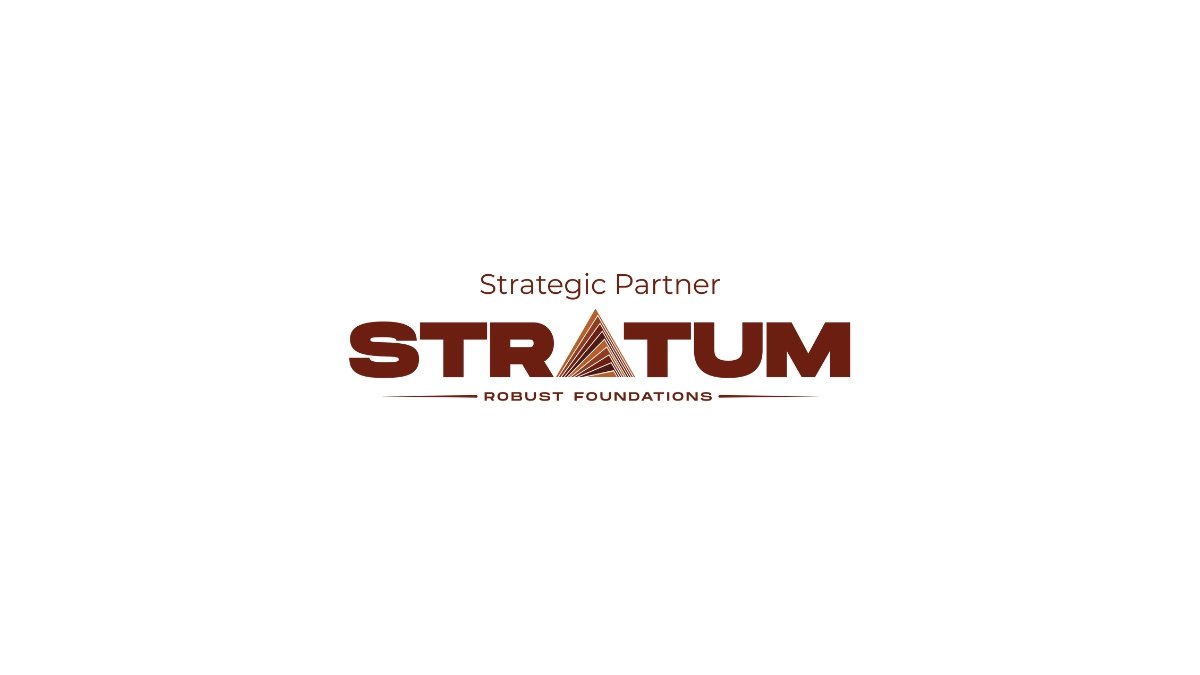The Future of Supply Chain Management: An Interview with EDI Specialist Siddeshwar Remma
Siddeshwar Remma, a seasoned software engineer, EDI specialist, and integrated implementation consultant, offers a unique introspection into the trends, challenges and future of Supply chain Management. With over a decade of experience in electronic data interchange (EDI) systems and implementing cutting-edge supply chain solutions, Remma has witnessed every phase of the evolution of the industry. In this interview with our --------, he opens up about various transformations going on the new wave of AI bred technologies, and their impact on the future and business world. Let's have a look. Q: Mr.Remma, thank you for joining us. Can you give us a glimpse into your work in EDI? As an EDI specialist in supply chain management, I focus on making data sharing between businesses smoother and more efficient. I work with teams and clients to understand their needs, using simple flow charts to design solutions that make work faster. To be precise, I ensure the implementation of better EDI processes and guidelines to keep things consistent. Q: How relevant is Supply Chain Management in today’s business world? Siddeshwar Remma: Supply chain is something that’s everywhere. It’s all the vein that the world works. Be it Retail industry, healthcare and banking sectors. It runs through every department that runs the systems in the world. And so goes the management of the supply chain. It has necessitated a completely new domain for its own management. I would rather say, it’s a every growing field with consistent streaks of new optimizing techniques, logistical approaches and techniques. Q: What do you assess about the current state of affairs in Supply Chain Management? What you are witnessing today in the supply chain industry is a key moment. In this age, where we are witnessing so many disruptions like geopolitical issues, climate driven logistical challenges, and aftershock effects of pandemic, the companies have decided to move away from the age-old traditional models and approaches. We must understand that AI(Artificial Intelligence), IoT, Blockchain and 5G are no more speculations about future. They have started to become mainstream for the supply chain industry. For example, AI driven analytics can be used to predict fluctuations in the demand, with accuracy. At the same time IoT sensors do provide real-time visibility and simulation into inventory management. Q: What role do these tools play in helping companies in optimizing their performance? These tools contribute a major role in helping companies move from reactive to proactive strategies, which is critical in today’s volatile market. The most key aspect of all these will be Data. The supply chain generates massive amounts of data. But, until the recent past, most of it was just kept only for the sake of record rather than performance assessment and optimization. Now, with cloud-based platforms and advanced analytics, we’re unlocking insights that streamline operations and reduce costs. Q: You mentioned AI and IoT. Can you give us a concrete example of how these technologies are reshaping supply chains? Siddeshwar Remma: Absolutely. Let’s take AI-powered demand forecasting. For example, we observed a project in which they implemented an AI model that integrates historical sales data, weather patterns, and even social media trends to predict inventory needs. The result? A 20% reduction in overstock and a 15% improvement in order fulfillment rates. This kind of precision was unthinkable a decade ago. The same thing applies to IoT too. Creating a digital twin, we can monitor the cargo conditions like - temperature, humidity and even vibrations, thus we potentially control every bit of the supply chain without needing to practically count each step in the process. These are the kinds of solutions that make supply chains not just efficient but antifragile. Q: Speaking of disruptions, the Trump administration’s trade policies, particularly tariffs, have been a hot topic. How do you see these policies influencing supply chain strategies? Siddeshwar Remma: From a professional point of view, I feel that, with changing times,cometh the new policies. As the tariffs policies change, companies will be rethinking about their sourcing strategies. In other words, their policies are spurring innovation. Companies now will be leaning more on automation to control rising costs. These systems can instantly flag tariff-impacted goods and suggest alternative suppliers, saving weeks of manual work. The new tariffs also highlight the importance of agility. Rigid supply chains are not at all desirable for any company these days. Robust and flexibility are two attributes that every supply chain is supposed to have. Though the environment seems to be challenging, the innovations will result out of it, will positively transform the landscape of the supply chain. Q:

Siddeshwar Remma, a seasoned software engineer, EDI specialist, and integrated implementation consultant, offers a unique introspection into the trends, challenges and future of Supply chain Management.
With over a decade of experience in electronic data interchange (EDI) systems and implementing cutting-edge supply chain solutions, Remma has witnessed every phase of the evolution of the industry. In this interview with our --------, he opens up about various transformations going on the new wave of AI bred technologies, and their impact on the future and business world. Let's have a look.
Q: Mr.Remma, thank you for joining us. Can you give us a glimpse into your work in EDI?
As an EDI specialist in supply chain management, I focus on making data sharing between businesses smoother and more efficient. I work with teams and clients to understand their needs, using simple flow charts to design solutions that make work faster. To be precise, I ensure the implementation of better EDI processes and guidelines to keep things consistent.
Q: How relevant is Supply Chain Management in today’s business world?
Siddeshwar Remma: Supply chain is something that’s everywhere. It’s all the vein that the world works. Be it Retail industry, healthcare and banking sectors. It runs through every department that runs the systems in the world. And so goes the management of the supply chain. It has necessitated a completely new domain for its own management. I would rather say, it’s a every growing field with consistent streaks of new optimizing techniques, logistical approaches and techniques.
Q: What do you assess about the current state of affairs in Supply Chain Management?
What you are witnessing today in the supply chain industry is a key moment. In this age, where we are witnessing so many disruptions like geopolitical issues, climate driven logistical challenges, and aftershock effects of pandemic, the companies have decided to move away from the age-old traditional models and approaches. We must understand that AI(Artificial Intelligence), IoT, Blockchain and 5G are no more speculations about future. They have started to become mainstream for the supply chain industry. For example, AI driven analytics can be used to predict fluctuations in the demand, with accuracy. At the same time IoT sensors do provide real-time visibility and simulation into inventory management.
Q: What role do these tools play in helping companies in optimizing their performance?
These tools contribute a major role in helping companies move from reactive to proactive strategies, which is critical in today’s volatile market. The most key aspect of all these will be Data. The supply chain generates massive amounts of data. But, until the recent past, most of it was just kept only for the sake of record rather than performance assessment and optimization. Now, with cloud-based platforms and advanced analytics, we’re unlocking insights that streamline operations and reduce costs.
Q: You mentioned AI and IoT. Can you give us a concrete example of how these technologies are reshaping supply chains?
Siddeshwar Remma: Absolutely. Let’s take AI-powered demand forecasting. For example, we observed a project in which they implemented an AI model that integrates historical sales data, weather patterns, and even social media trends to predict inventory needs. The result? A 20% reduction in overstock and a 15% improvement in order fulfillment rates. This kind of precision was unthinkable a decade ago. The same thing applies to IoT too. Creating a digital twin, we can monitor the cargo conditions like - temperature, humidity and even vibrations, thus we potentially control every bit of the supply chain without needing to practically count each step in the process. These are the kinds of solutions that make supply chains not just efficient but antifragile.
Q: Speaking of disruptions, the Trump administration’s trade policies, particularly tariffs, have been a hot topic. How do you see these policies influencing supply chain strategies?
Siddeshwar Remma: From a professional point of view, I feel that, with changing times,cometh the new policies. As the tariffs policies change, companies will be rethinking about their sourcing strategies. In other words, their policies are spurring innovation. Companies now will be leaning more on automation to control rising costs. These systems can instantly flag tariff-impacted goods and suggest alternative suppliers, saving weeks of manual work. The new tariffs also highlight the importance of agility. Rigid supply chains are not at all desirable for any company these days. Robust and flexibility are two attributes that every supply chain is supposed to have. Though the environment seems to be challenging, the innovations will result out of it, will positively transform the landscape of the supply chain.
Q: That’s fascinating. What other technologies do you think will define the future of supply chain management in the next five years?
Siddeshwar Remma: After AI and IoT, I’m more excited about blockchain and 5G. Blockchain offers an immutable ledger for tracking goods, which is a game-changer for transparency and fraud prevention. The kind of traceability blockchain offers will become a regulatory requirement in many industries. This blockchain when comes to the full effect, will reduce hundreds of efforts put for tracking every step of the supply chain.
Another trend to keep an eye on is low-code and no-code platforms. They lessen reliance on IT staff by enabling non-technical supply chain experts to create unique workflows. Supply chain teams can experiment without large resources thanks to these platforms, which democratize innovation.
Q: With all these advancements, what skills should aspiring tech professionals develop to thrive in supply chain management?
Siddeshwar Remma: The future needs hybrid talent - Skills in data analysis, cloud computing and AI are the most in demand now. Without a debate the every company in the world is adapting to big data, cloud computing in the near future. People must also keep an eye on chain specific technologies like EDI, warehouse management systems(WMS), and transportation management systems(TMS). Last but most important, soft skills always matter. It is never going to be a+b=c in the business world. People do see how you are going to work together with cross-functional teams—engineers, logistics managers, procurement specialists. Its more important to speak clearly with non technical language to your stakeholders.
Q: What is the first advice you give for young engineers entering the field?
Siddeshwar Remma: The world has changed from what we have seen ten years ago. There is a boom everywhere, and every field is changing at an exponential rate. The path to survival is not about being a jack of all trades, its more about adaptability, flexibility, and ability to upgrade yourself with the changing times. And so, is important, the understanding of basics. It was more relevant than ever. For those interested in EDI, like me, the field is evolving rapidly. Modern EDI systems are cloud-based and AI-integrated, requiring engineers who can handle complex integrations. Its a role in which every major retailer, manufacturer, and logistics provider relies on EDI to function. So, I advise all the upcoming engineers to be ready for change and learn constantly, not just for the sake of a job.
Q: Any advice for companies looking to future-proof their supply chains?
Siddeshwar Remma: There are three things that companies need to plan for. Invest in resilience, embrace digital twins, and prioritize sustainability. Resilience in the sense, is about building flexible systems that can still be stable under disruptions. Digital twins are virtual replicas of the supply chain that help you simulate the real time scenarios of the supply chain. And when it comes to sustainability, it is the most non-negotiable one. Adapting to changing times, like changeover to greener supply chains, is the need of the hour. Companies that ignore sustainability will lose market share. Anyone who ignore these three factors will be ignored. It sounds harsh, but that’s the reality I witness in this industry.
Q: Final question: What excites you most about the future of supply chain management?
Siddeshwar Remma: As we have spoken throughout the conversation, it is evident that, with the changing is changing the basic processes involved in supply chain management. What excites me the most is about the process of bringing in automation. The autonomous, self-learning systems that anticipate disruptions and progress without interruptions are a dream to achieve for any engineer. We are so close to making that dream a reality. From the food we eat, medicines we take, every aspect of our lives is touched by the supply chain, and as an engineer, being a part of a process, where I am able to change the world for better by improving and optimizing the supply chain is the happiest feeling right now.
.jpg)
.jpg)
.jpg)















.jpg)


.jpg)
.jpg.jpeg)




























